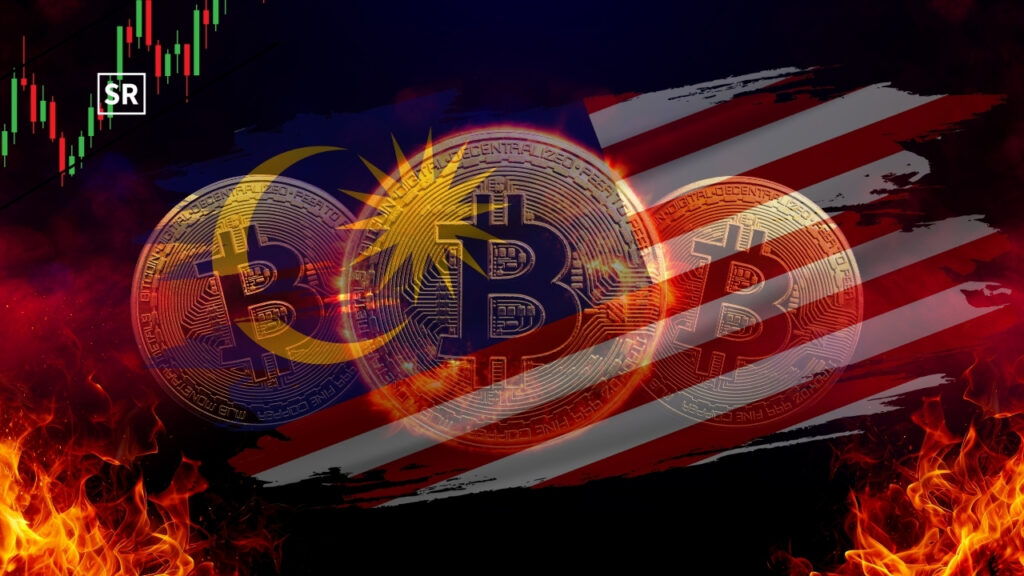
Cryptocurrency is a kind of digital money that exists only online. It uses special codes to keep transactions safe and to manage the creation of new coins. Unlike regular money, such as the Malaysian Ringgit, cryptocurrencies are decentralized, meaning they are not controlled by any single bank or government.
Are Cryptocurrencies Legal Tender in Malaysia?
No, cryptocurrencies are not legal money in Malaysia. This means you cannot use them to pay for things like you do with the Malaysian Ringgit (MYR).
However, the Malaysian government and the Securities Commission (SC) permit the legal purchase, sale, and trading of crypto through licensed exchanges. Cryptocurrencies are treated as investments or digital assets, not official money.
If you want to use crypto, you must follow rules like registering on a licensed exchange and completing KYC (Know Your Customer) verification to keep everything safe and legal.
List of Licensed Cryptourrency Exchanges in Malaysia (2025)
| Cryptocurrency Exchange | Deposit Fee | Maker Fees | Taker Fees |
|---|---|---|---|
| Luno | Free above RM100 | 0% – 0.35% | 0.13% – 0.6% |
| SINEGY | Free | 0.25% | 0.5% |
| Tokenize | Free | 0.1% | 0.6% |
| MX Global | Free | 0% | 0.5% |
| Hata | Free | 0% | 0.1% – 0.25% |
Approved Cryptocurrencies in Malaysia 2025
Aave (AAVE)
Purpose : Allows users to lend and borrow cryptocurrencies directly without using middlemen.
Key Features : Features include smart contract lending, flash loans, flexible interest rates (variable and stable), support for over 30 digital assets, and aTokens (tokens that earn interest).
Use Cases : Offers decentralized lending and borrowing, flash loans for arbitrage, yield farming, and liquidity provision.
Curve DAO (CRV)
Purpose : Specializes in fast and cost-effective stablecoin trading with minimal slippage and low fees.
Key Features : An automated market maker (AMM) for similar assets with low fees, liquidity pools, a governance token (CRV), and yield farming opportunities.
Use Cases : Supports stablecoin and ERC-20 token trading, liquidity provision, yield farming, and participation in governance.
Maker (MKR)
Purpose : A decentralized governance platform for managing the Dai stablecoin and the Maker Protocol.
Key Features : Features a governance token (MKR), community voting on protocol settings, and Collateralized Debt Positions (CDPs) to generate Dai.
Use Cases : This involves creating and managing the Dai stablecoin, decentralized governance, and collateralized lending.
Synthetix (SNX)
Purpose : Enables creating and trading synthetic assets (Synths) that mirror the value of real-world assets.
Key Features : Utilizes a pooled collateral model, supports synthetic assets (Synths), provides infinite liquidity, and integrates with layer 2 solutions.
Use Cases : Facilitates synthetic asset trading and derivatives, providing exposure to real-world assets without owning them directly, for DeFi applications.
Stellar (XLM)
Purpose : A decentralized payment network built for fast, low-cost cross-border transactions and promoting financial inclusion.
Key Features : Offers fast transactions (2–5 seconds), very low fees, a built-in decentralized exchange, and asset tokenization.
Use Cases : Enables cross-border payments, remittances, micropayments, asset tokenization, promotes financial inclusion, and allows stablecoin issuance.
Bitcoin (BTC)
Purpose : Bitcoin is primarily used as a digital currency, enabling direct money transfers between individuals without the need for a bank or central authority.
Key Features : Bitcoin’s main features are that it is decentralized, secured by blockchain technology, has a limited supply of 21 million coins, and its transactions cannot be changed once confirmed.
Use Cases : Bitcoin is commonly used for peer-to-peer payments, as a store of value, for remittances, and as an investment asset.
Ethereum (ETH)
Purpose : Ethereum’s primary purpose is to enable and support the use of smart contracts and decentralized applications (DApps).
Key Features : Ethereum’s main features include decentralization, smart contracts, scalability, and the capability to run decentralized applications (DApps).
Use Cases : Ethereum is used in various areas such as decentralized finance (DeFi), non-fungible tokens (NFTs), supply chain management, gaming, healthcare, and more.
Avalanche (AVAX)
Purpose : Avalanche is a blockchain platform for smart contracts that focuses on faster transactions, better scalability, and easy interaction between different blockchains.
Key Features : Avalanche features a special consensus system, processes thousands of transactions per second, charges low fees, and integrates with Ethereum’s tools. It also allows users to create their own custom blockchains.
Use Cases : Avalanche is used for decentralized finance (DeFi), building custom blockchains, enterprise financial solutions, and running decentralized applications (dApps).
Polygon (MATIC)
Purpose : Polygon’s primary goal is to improve Ethereum’s scalability and usability by offering a Layer 2 solution that lowers transaction fees and speeds up transactions.
Key Features : Polygon’s main features include high scalability using a multi-chain system, compatibility with Ethereum, low transaction fees, and strong security measures.
Use Cases : Polygon is widely used for decentralised finance (DeFi), trading NFTs, building decentralised applications (dApps), and improving the performance of Ethereum-based projects.
Bitcoin Cash (BCH)
Purpose : Bitcoin Cash is created as a digital currency for everyday transactions, serving as an electronic cash system and solving Bitcoin’s scalability problems.
Key Features : Bitcoin Cash has bigger block sizes (up to 32 MB) to handle more transactions, faster processing times, lower fees, and better scalability than Bitcoin.
Use Cases : Bitcoin Cash is often used for direct payments between people, sending money across borders, and small everyday transactions because it is fast and has low fees.
Current Overview of Cryptocurrency in Malaysia
In Malaysia, cryptocurrency is becoming more accessible not just through exchanges, but also via banks and investment managers. For example, Affin Bank is the first Malaysian bank to offer a crypto ETF fund, and Halogen launched the country’s first Shariah-compliant crypto fund.
Luno, a crypto platform, also offers “Luno Bundles,” which let Malaysian investors diversify their crypto investments. These bundles automatically adjust every three months based on updates from CoinDesk Indices.
Additionally, Kenanga Investment Bank, through its private equity branch, Kenanga Private Equity, agreed to buy a 19% stake in Tokenize, a local crypto trading platform.
However, investors need to be careful. The Malaysian Digital Asset Platform Association has warned about crypto scams, which are rising towards the end of 2024, with some scams nearing US$100,000.
Although regulations are still evolving, Malaysia has made progress in creating a safe framework for crypto trading. As with any investment, it’s important to research carefully understand the risks and only invest money you can afford to lose.
Conclusion
Malaysia’s cryptocurrency market is growing rapidly, providing people with more investment options through exchanges, banks, and specialized crypto funds. Even though crypto is not official money, it is allowed and regulated for trading and investment, so it can be used safely if done responsibly. With many approved cryptocurrencies, new investment options, and increasing popularity, Malaysians can safely join the crypto market by staying informed, using licensed platforms, and understanding the risks. Crypto in Malaysia offers exciting opportunities, but it also requires caution, so learning and careful planning are very important before investing.





